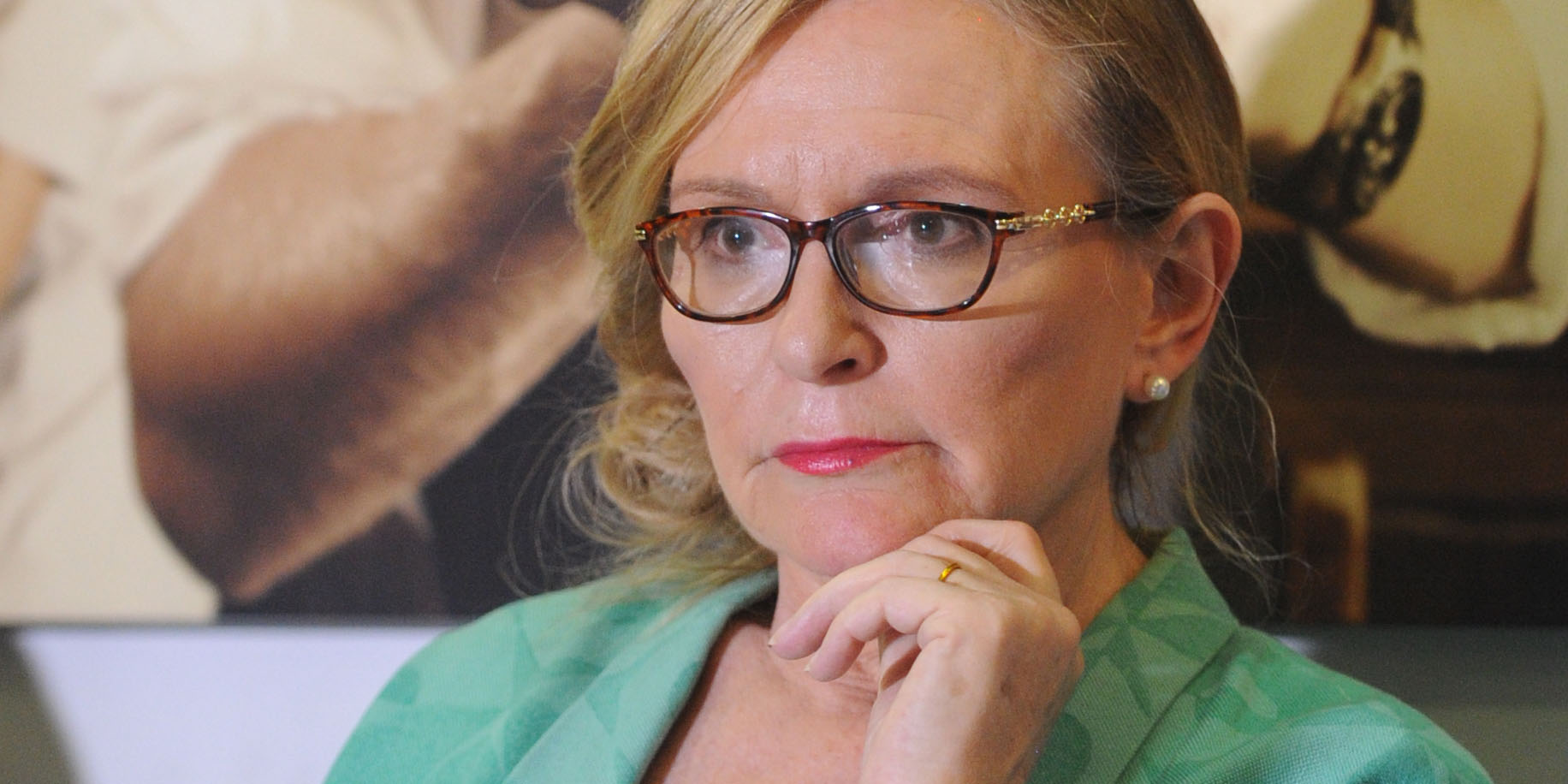While suggesting that “it may well be” that the public protector’s decision was “legally flawed”, the court found that any mistakes of law and fact in the report did not breach the principle of legality. The judgment in Premier of the Western Cape v Public Protector and Another is important because the new legal standard applied in the case would, if followed, make it very difficult for courts to review and set aside reports of the public protector.
The judgment contains much of interest for people interested in the judicial review of bodies exercising public power, in general, and of the reports of the public protector, specifically. But the most surprising aspect of the judgment may well be that the court considered the merits of the arguments placed before it at all, given that it found this was merely an academic exercise.
The court noted that Helen Zille was no longer premier of the Western Cape, which means the Western Cape Legislature can no longer sanction her – as instructed by the public protector in her report. The court therefore held that the remedial action imposed by the public protector in the report falls away and the issues in the application have therefore become moot.
The court pointed out that judicial review does not lie against moot matters. A court may only determine issues which no longer present existing or live controversies if the interest of justice so requires, and it was not in the interest of justice to do so in this case. “In my view,” wrote the judge, “a reasoned judgment in this matter is simply of academic significance and of no practical consequence… The entire hearing was therefore rendered academic.”
The court nevertheless proceeded to consider – and then reject – all the arguments presented to it by Zille’s lawyers. To try and understand the reasoning of the court (which, in places, is not easy to follow), it is important to grasp the distinction made in our law between appeals and reviews, a distinction emphasised by the High Court.
When a court hands down a judgment, one of the parties unhappy with the judgment may try to approach a higher court to appeal that judgment. In an appeal, the higher court can consider the merits of the case and can overturn the lower court judgment if it finds that the lower court got either the facts or the interpretation and application of the law wrong.
However, the Office of the Public Protector is not a court of law – it is an independent body exercising public power. One can therefore not approach a court to overturn the findings and remedial actions contained in her reports merely because the public protector got the facts or the law wrong. However, one can approach a court to review and set aside the findings and remedial action contained in public protector reports under the principle of legality.
When asking a court to review and set aside the findings and remedial action of the public protector under the legality principle, one can argue, among other things, that the public protector was not empowered by law to investigate the matter, that either the investigation or the findings and remedial action were irrational, or by arguing there were material errors of law which had an impact on the findings. (Our courts have sent mixed signals on when a court can review and set aside the exercise of public power on the basis of material errors of fact, and I do not deal with it here.)
It is therefore much more difficult to convince a court to review and set aside a decision under the legality principle, than it is to convince a court of appeal to overturn a judgment because the lower court got either the facts or the law wrong.
The court emphasised this distinction between reviews and appeals throughout the judgment. For example, the judge remarked at paragraph 46 of the judgment that the premier was arguing about the merits of the case, and was in fact contending that the public protector’s decision was legally flawed. The judge then continued:
“It may very well be. But that is not what a court of review concerns itself with, unless such an error is vitiated by a lack of independence. Even then, it is the lack of independence, more than the error of law that becomes the issue on review.”
Curiously, Zille’s lawyers seemingly did not argue that the public protector was not empowered by law to investigate alleged infringements of the rights contained in the Bill of Rights. I had previously argued that, while the powers of the public protector are wide-ranging, they do not include the power to investigate human rights infringements. But we will now have to wait for another occasion to see what our courts say about the correctness of this argument.
The court did consider the argument that the public protector committed a material error of law by finding that section 16(2)(b) of the Constitution “was created to curb” the kinds of incendiary and hurtful statements made by Zille, and that the section “prohibits statements… capable of stirring up racial violence”. It is not in dispute that this claim is wrong in law. In Islamic Unity Convention v Broadcasting Complaints Commission, the Constitutional Court confirmed that section 16(2) does not prohibit speech. Instead, it defines what speech is not protected by the Constitution.
The High Court held that if this was an error of law, it was nevertheless not reviewable under the principle of legality. While erroneous judgments in law, particularly by public functionaries whose recommendations are binding, “indeed violate the rule of law”, it is not, said the court, for a review court to interfere with and substitute the decisions of the public functionaries with its own. Turning to the specific argument that the public protector wrongly held that section 16(2)(b) of the Constitution prohibits speech, the court held (in a passage that is not easy to decipher):
“This is an argument against the public protector’ conclusion, not an argument against her reasoning for the conclusion. To contravene the provisions of an Act of Parliament is to act contrary to/or not in accordance with those provisions. I do not see this as an unreasonable conclusion. To then argue that the findings of the public protector that the premier contravened the provisions of an Act of Parliament is vulnerable to judicial review, is in fact arguing an appeal.”
I think this must be wrong. Whether it was reasonable for the public protector mistakenly to conclude that section 16(2)(b) prohibits any speech is not part of the test to review and set aside her findings and remedial action because of an error of law. Neither is the requirement that the error of law will only be material if it displayed a lack of independence on the part of the public protector. The question is different, namely, whether the decision-maker could have reached the conclusion it did even on a correct interpretation of the law.
The Constitutional Court confirmed this principle in Johannesburg Metropolitan Municipality v Gauteng Development Tribunal where it held:
“In terms of this standard it is not enough to merely show that the empowering statute has been incorrectly interpreted. One must go further and apply the correct meaning to the relevant facts. If the decision is justified, interference is not permitted. But if on the application of the right interpretation, the facts do not support the impugned decision, the erroneous interpretation is taken to have materially influenced the decision.”
In the present case, the public protector could not have reached the conclusion that Zille breached section 16(2)(b) of the Constitution because section 16(2)(b) cannot be breached. As this section does not prohibit any speech, on a correct interpretation of the section it would not have been possible to find that the section prohibits Zille’s tweets on colonialism. The public protector therefore made an error of law and the report should have been reviewed and set aside on this basis.
Be that as it may, the judgment is of interest because it reminds us that individuals who find themselves on the wrong side of the public protector cannot challenge the findings and remedial action contained in a report merely because the public protector got the facts or the law wrong. Unlike a litigant in a court case, such an individual will not be able to challenge the factual or legal correctness of the findings or the binding remedial action imposed by the public protector in an appeal – unless the error is material to the findings made by the public protector.
But because the public protector’s findings and remedial action can be reviewed and set aside if they are based on material errors of law (and, in some cases, on material errors of fact), the lack of an appeal option is less harsh than it looks. This is because the court will still be able to review and set aside the findings and remedial action of the public protector if the findings and remedial action could not have been made but for the error of law.
However, if the High Court approach were to be followed, it could lead to significant injustice as findings and remedial action that could never have been made if the law was correctly interpreted, could become unchallengeable. This would constitute a serious blow to the Rule of Law. DM





